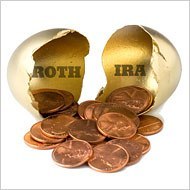Blog Posts
- Adultery
- Children
- Community Spotlight
- Divorce - Custody
- Divorce - Finances
- Divorce Preparation
- Domestic Violence
- Health Insurance
- Legislation
- Prenuptial Agreement
- Relationship
- Spousal Tales
Quick links
Retirement Accounts and Divorce

Retirement Accounts and Divorce – Are you thinking about filing for divorce in Massachusetts? Then you need to know what is likely to happen to your retirement accounts. The most popular type of retirement accounts includes pension plans, 401(k)s, IRAs and Keogh plans. Typically, the coverture value of the retirement plan is divided equally. Lets take a look at what this means.
The coverture value is the value of the marital portion of the retirement plan. Depending on the type of plan, this value can be easily calculated. For defined contribution plans (ie: 401Ks) it is the difference between the value of the plan on the day of marriage and the value of the plan on the day of separation. The new value is considered the coverture value and is typically split equally.
If your retirement plan is a defined benefit plan, (ie:pension plan) there are a couple options. One option is to divide the coverture value equally. Another option is to determine the present coverture value and set it off against other assets. Pension plans are complex and it is necessary to hire an actuary to determine the present value.
If you are going to divide an ERISA or civil service governed plan, then it will require a Qualified Domestic Relations Order (QDRO). The QDRO avoids one party from incurring a 10% anti-assignment penalty and tells the plan to assign the applicable portion of the plan to the ex-spouse. If you need assistance drafting a QDRO, go to QDROease.com for assistance. Additionally, do not forget that the plan may charge a QDRO administration fee and the allocation of this fee should be included in the divorce agreement.
Retirement accounts are typically one of the largest assets in a marriage. You should consult a Massachusetts divorce attorney that understands retirement accounts.